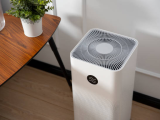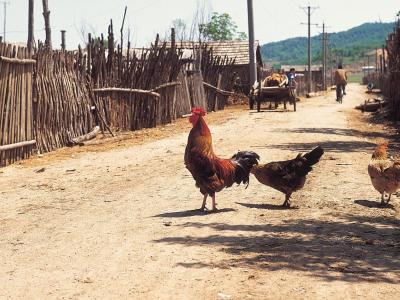Jul 23, 2009
British businesses lag on preparedness
Absenteeism in British workplaces is three times normal for this time of year, a consultant group told the British government this week, leading to fears that businesses will struggle when the H1N1 influenza pandemic peaks, the Financial Times reported today. Many companies have instituted hygiene steps, but an expert said most haven't planned for absences, such as making telecommuting plans, boosting customer self-service systems, and identifying key workers.
[Jul 23 Financial Times story]
Neurologic complications arise in children with H1N1
The US CDC reported today on four children who had neurologic complications of novel H1N1 flu. The four, aged 7 to 17, were hospitalized with flu-like illness and seizures or altered mental status, according to Morbidity and Mortality Weekly Report. All recovered fully. The complications were less severe than those described in two recent reports of cases related to seasonal flu. The CDC advises clinicians to be alert for such cases and use appropriate tests and antiviral treatment.
[Jul 24 MMWR article]
Muslim countries bar high-risk groups from hajj
Health ministers from Middle Eastern countries who met yesterday to discuss pandemic flu risks decided to ban children, the elderly, and those with chronic health conditions from attending the hajj pilgrimage in Saudi Arabia in late November, the Associated Press (AP) reported. The ban applies to children under 12 and adults over 65. Some Muslim clerics have opposed pilgrimage travel bans and have said flu risks are exaggerated.
[Jul 23 AP story]
Britain launches flu phone line
Britain launched its national influenza phone hotline today, staffed by more than 1,500 people, the London Telegraph reported. The system is designed to relieve pressure on England's National Health Service. Patients experiencing novel H1N1 flu symptoms can call in to have their illness diagnosed and receive a code number that allows them to obtain oseltamivir (Tamiflu). Patients from high-risk groups will be referred to doctors.
[Jul 23 Telegraph story]
Southern hemisphere sees H3N2 seasonal flu variant
Laboratory experts in the southern hemisphere are reporting the circulation of a drifted strain of the seasonal H3N2 flu virus, raising the threat of a vaccine mismatch for the northern hemisphere's upcoming flu season, the Canadian Press reported today. Officials, overwhelmed by handling a deluge of pandemic H1N1 samples, aren't sure how common the variant is. It was first identified in March by researchers in British Columbia.
[Jul 23 Canadian Press story]


















